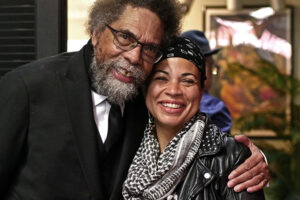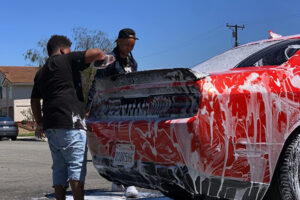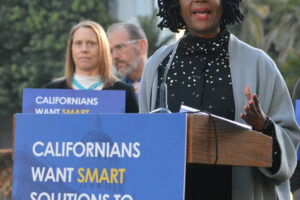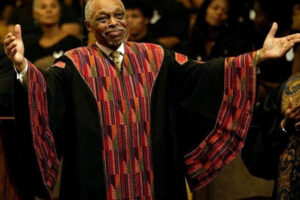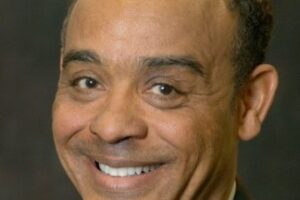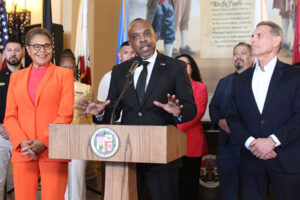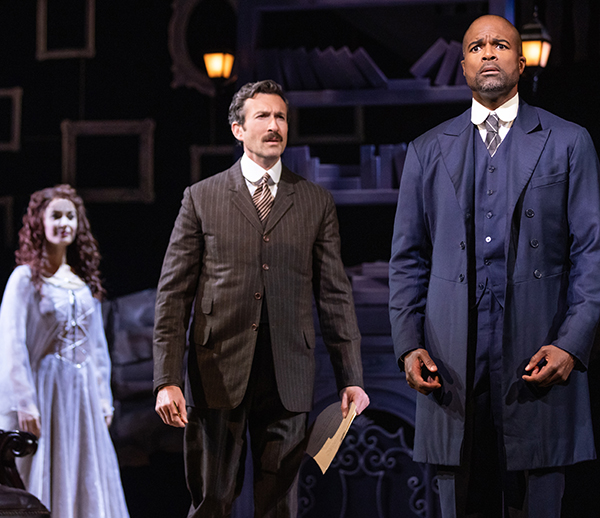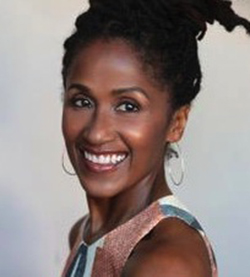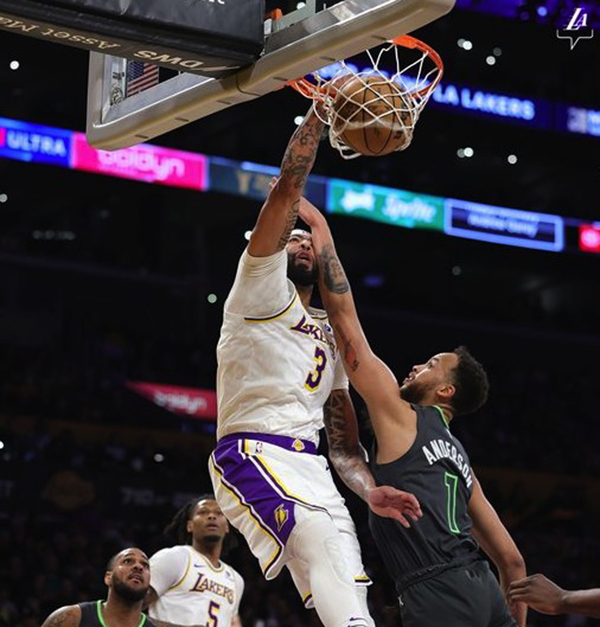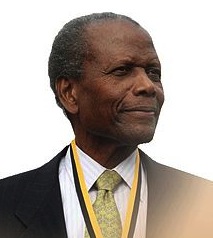By Darlene Donloe
Contributing Writer
Derrick Davis has been acting for a long time.
Whether it’s film, television, or his beloved theater, Davis has made it his mission to always portray and present memorable characters.
He’s played iconic roles like Mufasa in “The Lion King,” the Phantom in “The Phantom of the Opera” and Martin Luther King Jr. in “I Dream.”
He’s now on stage at the Ahmanson Theatre in Los Angeles through March 26, playing Archibald Craven in the classic, “The Secret Garden.”
Based on the classic novel of the same name, the show follows the young, orphaned Mary Lennox as she is sent from her home in India to live with her reclusive uncle on his haunted English country estate. Guided by an exceptionally beautiful score, audiences will be swept away by Mary’s unapologetic curiosity as she is joined with the help of unlikely companions sending her on a quest to untangle the pieces of her family’s past and, most importantly — discover herself.
Davis plays Mary’s emotionally detached uncle who, since the death of his beloved wife, has distanced himself from life and Colin, his sickly son.
The garden is described as an overgrown hidden beauty that has not been seen for 10 years.
The show is a full-circle moment for the native New Yorker.
When he was in junior high school, a teacher came to the school and took students to see a play on Broadway. The play was “The Secret Garden.”
“I remember sitting on the edge of the seat and being mind blown,” said Davis during a recent interview. “At the end of the musical, he walked off into this white light upstage. I don’t know where they went, but I wanted to go. It’s crazy. I pinch myself every morning thinking I have the privilege of playing that role now. At that moment, the bug bit me.”
Mere hours before he was set to take the stage as Archibald, I caught up with Davis to discuss the show and his remarkable career. The handsome, single actor with the yummy voice was in a jovial mood.
Davis, who lives in Astoria, New York, and studied opera at Long Island University, has a calming demeanor that allows the moment to feel simply like two friends talking.
Donloe: Tell me about your role as Archibald Craven in “The Secret Garden.” Why did you want to play him?
Davis: Partially because it was the first show I saw. I hadn’t seen anyone of my skin color playing it. I wanted to make it powerful for the next generation. The character represents what the world is experiencing post-pandemic. He has dealt with severe loss, a cycle of grief. The play has a gorgeous arc for his character. He goes from being grief-riddled to finding hope. The theater is a place where people can escape reality and then see it reflected in them. They are taken on a journey.
I like to try to connect with the audience. I feel the audience. For me, it all happens the second I step out on stage. I can feel when the audience is with me or not with me. My job is to tell the story in such a way that it is conveying the connection to the listener.
Donloe: What do you like about your character? What don’t you like about your character? Do you have to like them to play them?
Davis: Absolutely not. I don’t have to like him. I have to understand them. I don’t have to like them. Sometimes it’s better not to like them. Archie, I like him because he represents in slight extremes what all of us will have to endure if we haven’t already. Reflect humanity to humanity. He does that very well.
What I don’t like is that if I were actually Archie, I wouldn’t be passive, especially when it comes to the care of a child.
Donloe: Do you share any traits with your character?
Davis: I understand him. I have to make my characters make sense historically. It was completely believable that in 1906 that Archie could have a white brother in Yorkshire, England. A lot of times the lords of the manner would go to the British Virgin Islands and have relations and sire children. His anger and his frustration are multi-layered. What he has to endure is multiplied.
Donloe: What did you want to convey to the audience about Archie?
Davis: I wanted to get across that someone with so much could live as if they had so little. He has all the money he would ever need, servants, and a son, but he can’t see it because he’s stuck with what he lost.
Donloe: How much of your character was on the page and how much did you bring to the table?
Davis: Great question. Marsha Norman is a Pulitzer Prize-winning author and writer. Her writing is so brilliant. Enough of it is on the page and can live within someone who doesn’t do any work beyond the page. Every time I step on the stage I learn something new on the stage. It was kind of both. It was all there and it left time to expand.
Donloe: What does a role or character need in order to attract you?
Davis: Depth. It can’t be a surface character. It needs to have gravity. There needs to be something that will affect change of some sort in the listener or watcher. Art that doesn’t provoke is pointless.
Donloe: How do you prepare to go on stage?
Davis: I get to the theater an hour before the show. I change out of my street clothes into my sweats. I stretch. I listen to music, change into half of my costume, get into makeup, get my mic, and say a prayer for me and the audience. I listen to a song that puts me into the headspace of the character without interfering. I play it once before I leave the dressing room. I ask people not to come into my room.
Donloe: What do you listen to?
Davis: It’s Cynthia Erivo’s “You’re Not Here.” It fits for it to be Archie’s song.
Donloe: You have had roles as The Phantom in the 25th anniversary tour of “The Phantom of the Opera,” Mufasa on the Gazelle Tour of Disney’s “The Lion King” and Billy Bigelow in “Carousel” on Broadway, Curtis Taylor in “Dreamgirls,” King Triton, and Martin Luther King. Counting Archibald Craven, what has been your favorite? What has been the most challenging?
Davis: I love them all for different reasons. Phantom was challenging, the rigors of the role. The solitude. There wasn’t much interaction with the cast. The loneliness of that. For the role, you stay quiet during the day so you can sing at night. This one is similar. The most enjoyable is Scar in the “Lion King” because he’s not like me. He’s maniacal, a murderer.
Donloe: What is it about the theater?
Davis: For me, it’s what I feel. I want to give people the gift of what I feel when I’m in an audience. The lights go down and you sit with thousands of other people. Because the lights are down you feel like you’re by yourself. It gives you permission. You can go on an emotional journey. Theater gives people a creative escape. In television or film, you don’t get to redo it. I love the challenge and the artistic escape.
Donloe: You have done theater, TV and movies, what does each one do for you, and which one is your favorite medium and why?
Davis: I don’t have a preference. Each one is a completely different discipline. I love to grow. With TV and film, time is money. You have to be ready and prepared to execute with little rehearsal. With theater, you rehearse, rehearse, rehearse. You never get the same performance twice.
Donloe: People in Los Angeles are split on whether L.A. is a theater town. What makes a place a theater town? Your thoughts?
Davis: If a place has a theater that people go to, then it’s a theater town. The Ahmanson area feels like Lincoln Center to me. L.A. is a theater town.
“The Q&A” is a feature of Wave Newspapers asking provocative or engaging questions of some of L.A.’s most engaging newsmakers or celebrities.
Darlene Donloe is a freelance reporter for Wave Newspapers who covers South Los Angeles. She can be reached at ddonloe@gmail.com.

